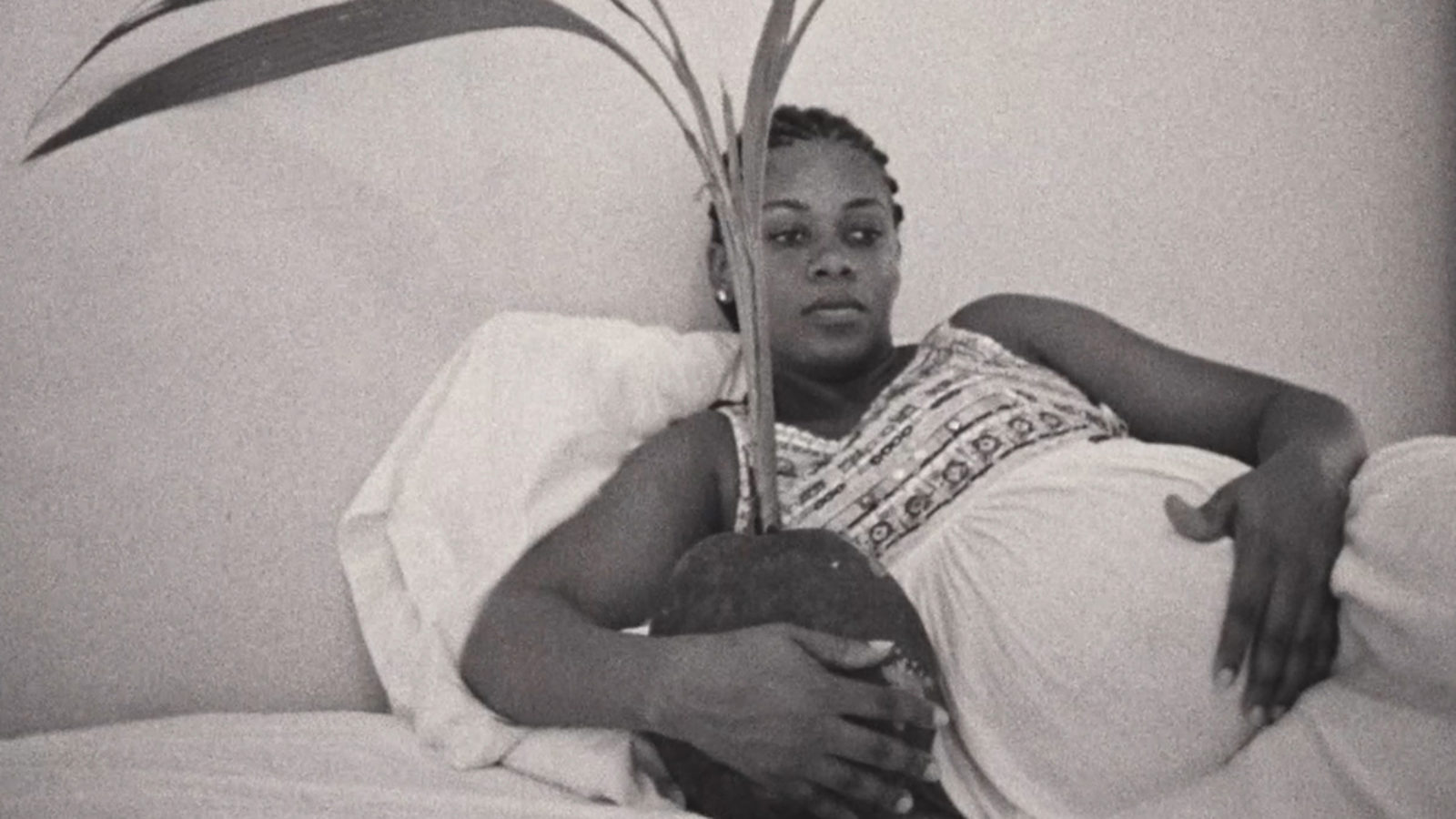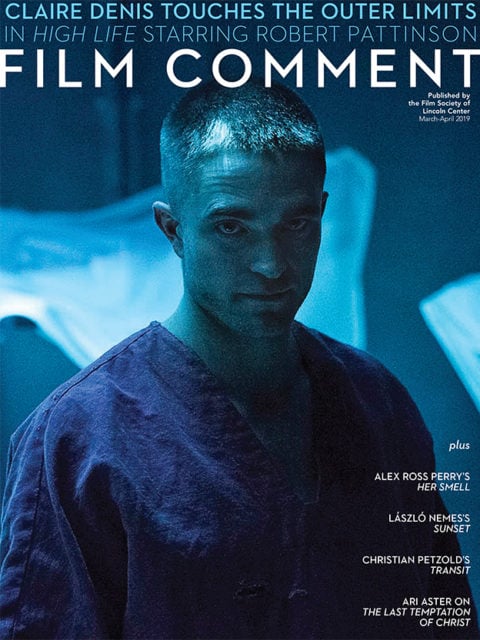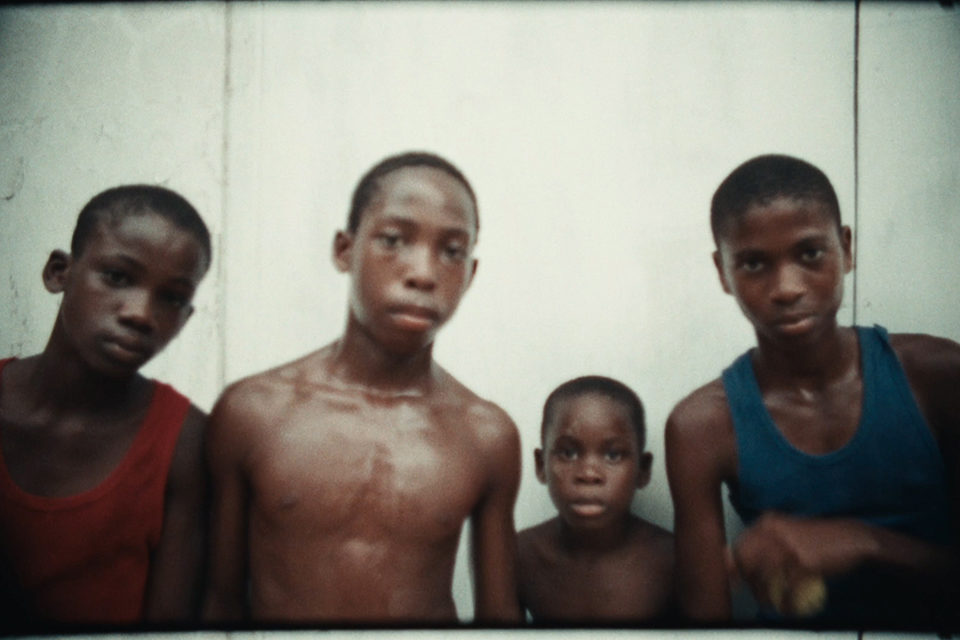
The Big Screen: Black Mother
Revisiting and refining the tactics that made his 2015 feature documentary Field Niggas such a striking rendering of Harlem’s most precariously marginalized inhabitants, Khalik Allah’s Black Mother finds the New York–based photographer and filmmaker expanding his purview to include an entire nation, that of Jamaica, his maternal homeland. Functioning as director, cinematographer, and—crucially—editor, Allah entrancingly juxtaposes a wide-ranging visual montage of self-conscious portraiture and locales—markets, beaches, homes, churches, country roads, and red-light districts—with a soundtrack constructed largely of a cappella song renditions and a chorus of voices offering personal stories and attesting to the crippling social ills, robust religiosity, and general ideals of Jamaican culture.

Voices and bodies never sync up in Black Mother. The rhythmically calibrated disconnect can be alluring, but the absence of an explicit relationship between who’s visible on screen, who’s speaking, and what’s being said prompts a number of thorny ethical questions. As with Field Niggas, there is the sense that by not allowing his subjects to speak on camera, Allah is, no doubt inadvertently, negating their ability to establish themselves as individuals with individual stories, opinions, and petitions. What’s more, if the voice we hear is speaking about, say, the glory of Jamaican women as early-rising, healthy-eating, ever-nurturing care-providers who are “the nucleus of the strength of the black man,” or about the perils of patronizing the “wicked Chinamen stores” that peddle toxic Kool-Aid instead of natural fruit juices, but we aren’t sure who the speaker is, exactly whose truth is being presented here? Is one speaking for many? For the film? For the country? By generalizing its subjects’ perspectives into something unified, Black Mother is in danger of continuing some of the same colonialist tendencies it critiques in its historical digressions or through images of people displaying copies of books by Marcus Garvey or Malcolm X.

Courtesy of Grasshopper Film
To be sure, with its almost palpable earnestness and its reverence for the community it’s depicting, Black Mother can’t help but generate goodwill. Yet the film’s dearth of reflexivity with respect to subjects as broad as gender roles can hardly be ignored out of regard for Allah’s remarkable gift for connecting with people. The film’s fluid formalism often results in a superficiality accentuated by the convention of alternating motion speeds and showcasing gestures and poses familiar from the work of hugely influential photographers such as Jamel Shabazz. There’s also a sometimes literal-minded fusing of audiovisual content: we hear, for example, a woman thanking Jesus for the food we eat while being shown an image of a man eating food.
The representational limits of Allah’s modus operandi are that much more apparent when compared, perhaps inevitably, to another celebrated, impression-laden nonfiction community portrait that emerged on the festival circuit last year. RaMell Ross’s Hale County This Morning, This Evening follows a pair of young men living in the mostly African-American Alabama county. Like Black Mother, it prizes rhythm and atmosphere and eschews conventional context delivery systems. Unlike Black Mother, Hale County This Morning, This Evening’s characters develop in tandem with its detailed evocation of place, while its sequencing prompts us to reconsider how certain communities defined by race, class, or geography are typically regarded in visual culture. Applying associational rigor to his poetic weaving of scenes and gradual accretion of narrative, Ross avoids reinforcing cultural clichés, a trap that Allah slips into. There are numerous individuals in Black Mother vying for our interest and empathy; if only one of them could be fully tended to, could be granted a voice, rather than simply flowing into the current of Allah’s amiable image stream.
José Teodoro is a freelance critic and playwright.







